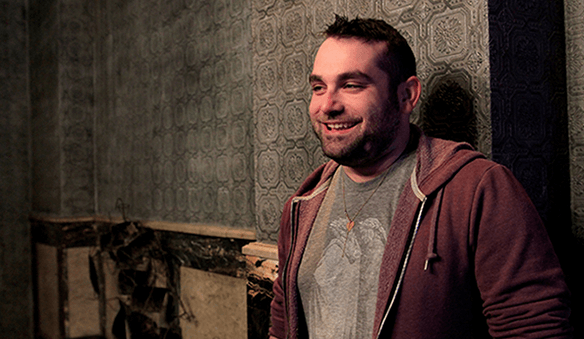Talking With Ric Leichtung, Founder of Ad Hoc


“As I see it, culture and creativity have a sort of synergistic relationship where one supports the other,” says Leichtung, when asked about the current state of culture in Brooklyn. “Right now the cost of living is unbelievably high in Brooklyn, so much so that artists who do live in Brooklyn are having to prioritize financial gain as opposed to focusing on their craft. I’ve noticed a mass exodus of Brooklyners to the Midwest—specifically Detroit and Chicago—because it’s a place where artists can live affordably and work on their art. Living in North Brooklyn is not sustainable for young creative people right now, and anyone who tells you otherwise is either severely out of touch or is getting help from mom and dad—not that there’s anything wrong with that, but the artists that made North Brooklyn so desirable to live in can’t afford to live in North Brooklyn anymore.
“But high costs of living have been isolating artists for a long time. It’s funny—you can look at these culture hotbeds in the past like Vesuvio Cafe where Kerouac and Ginsberg used to hang out, or Carousel Bar where Capote and Hemingway would meet to exchange ideas, and you realize these places became established because they were essentially neighborhood haunts. It might sound far-fetched now, but you can compare these now-historic places like Carousel Bar and Vesuio to current culture incubators like Bossa Nova Civic Club or the Silent Barn; their rapidly growing followings have been born and fueled by the support of the locals in their neighborhoods.
“Right now there’s no DIY venue operating on a larger level. All the places have shut down, and kids don’t have the resources to just grab a warehouse or a loft space and throw shows in it. Most of the pre-gentrification DIY venues have closed aside from Shea Stadium, and now real estate is so expensive it’s impossible for us to rip it up and start again. And the reality is that legality is definitely a luxury. It’s an ideal, but not a viable option for a lot of people who’re just starting out. The Silent Barn had the benefit of establishing themselves in the community early, and when they needed it launched a successful Kickstarter campaign that attracted financial backing. But even legitimate businesses that seem successful are barely breaking even due to the financial burdens that New York puts on small businesses.
“I see Brooklyn surviving its cultural apocalypse, but for all the wrong reasons. First, New York is one of, if not the, epicenter of music in the world. It’s also where some of the biggest international music media outlets are based—places like Pitchfork, Spin, Hype Machine, and Stereogum are a few but there are too many to list. New York’s cultural capital has proven to be evergreen—the city at large has managed to sustain cultural influence even beyond its golden era in the ’70s and early ‘80s. And I think it’ll always be relevant and there’ll always be good things coming from it. But it’s entirely realistic that Brooklyn could lose its standing as the innovative game-changing music culture hub it is now.
“I’m ambivalent about the future of North Brooklyn. There’s no question there’ll still be great things coming from there but not as much as there could be. Artists and writers are inspired by what’s around them, which could very well be mediocre, uninspired, and derivative. This doesn’t mean that all’s lost—it’s not like there hasn’t been any good music coming from San Francisco since the ’60s or Seattle from the ‘90s, but make no mistake—Brooklyn will lose some momentum.”
You might also like 




















